- Home
- Craig Lancaster
The Fallow Season of Hugo Hunter Page 24
The Fallow Season of Hugo Hunter Read online
Page 24
“Not your problem.”
“I wish he had, though.”
“Maybe he just needs time. You did. Anyway, like I said—”
“Not my problem.” He brightened. “Amber said she’d come next week.”
“That’s great.” I clapped him on the arm. “That’s really great, Hugo. Lainie and I will be there, too.”
“What about you?” he asked.
“Same old. Getting ready for our arrival. I’m painting a nursery, hanging some wallpaper, that kind of stuff. Working part-time at Costco as a stocker. I have lots of time.”
“You’re going to be a great dad.”
I probably smiled bigger than I wanted to. “I hope,” I said.
“I’m sorry about your job,” he said.
I waved him off. “Don’t be.”
I sure as hell wasn’t sorry. Trimear found me in the hospital cafeteria the second day Hugo was in. He sat down opposite me, head bobbing in double time, and said, “You had to know we’d find out where he was eventually. You didn’t have to lie to Bobby.”
“I didn’t much care. Nothing personal.”
“You used to care. You were a damn good journalist once.”
“I’m trying to be a better friend. Anyway, I didn’t care about the job anymore, so I left. You ought to be glad about that.”
“I’m not,” he said.
“I can’t help you, then.”
He stood up and left, and I haven’t heard from him since.
“So, listen,” I said to Hugo, “you given any thought to what you’re going to do once you’re done here?”
Hugo’s face lit up. “Yeah, actually. I’m going back to school. Get my GED, then try college.”
“Really?”
“Yeah. It’s what I want to do. These guys I’ve been talking to, they said the best thing I can do is keep my mind engaged. Seems like the place to do it. Raj said he’d help with the cost.” Hugo may have been prone to squandering a fortune, but his son had gone to the bank with the money from nearly a decade earlier, the money Hugo didn’t want to release. I stood amazed at how the past kept revisiting us in new forms.
“I think it’s great, Hugo. Really great. Aurelia would be proud.”
“Thanks, man.”
I held him by the arm. I didn’t want him to go.
“Hugo, have you given any thought to what I told you about? You know—”
“My brother,” he finished. “Yeah. Sometimes, I don’t think about anything else, and then I remind myself that this is my fight right now. This is all I have time for. There’ll be time for other things later.”
“Yeah.”
“But I’m glad you told me,” he said. “Truly.”
I released my hold.
“Listen,” he said. “I’d better get in.”
He offered a handshake, and he should have known better than that. I grabbed him and pulled him into a hug. A bro hug. What brothers do.
I walked across the lawn toward the parking lot, through the brown weeds that had been choked out by winter. I checked my watch. Six o’clock. Lainie would be home soon, waiting for me and my report. I thought about grabbing some cheeseburgers, then discarded that notion. I was living for three now.
I opened the car door and slipped into the seat.
“Mark!”
Here came Hugo, easing his way down the hill, leaning into his cane.
I retracted the window and leaned out. “I forget something?” I asked.
“No, I did.” He rested his arms in the window opening and sucked down a few breaths.
“What?”
“You remember that time I told you about how I wasn’t self-aware? I’m working on it. One of my things is that I forget to inquire about other people.”
“Don’t worry about it.”
“No, no. I’m asking. What about you, Mark? What are you going to do?”
“I’ve given it some thought.”
“I bet you have.” He had a smile like I was in on some kind of private joke.
“I’ve got a kid on the way. That’s the main thing,” I said. “But I’ve been thinking about your book idea. You still want to do that?”
“Hell, yes.”
“Did you ever do the writing I asked you to do?”
That sheepish look again. “Some,” he said. “It’s at the house. I’d like to take another shot at it.”
“Well, when you’re ready, start writing down what you want to say. I’ve made some notes, dredged up some memories. I think it would be fun to help you write about that.”
“The adventures we’ve had?” he said.
“Yeah, I guess so. The adventures you’ve had.”
He stood up and offered a handshake. I accepted.
“I think you’ve gotta help me, Mark. Nobody else can keep me honest like you can. We’ve got to make sure it’s the truth, OK? Stories are so much better when they’re true.”
With that, he turned away and started inching back up the hill. I watched as he moved away from me. Home, for now, lay just a few steps away. He was safe, for now. Beyond that, I could only hope. But that’s the future for all of us, when you think about it. No guarantees. Just preparation and hope. It’s all we have, and it has to be enough.
I backed the car out and made my way to Twenty-Seventh Street for the ride up the hill and along the backbone of the Rimrocks, here in the place that I’d always called my own. It seemed less familiar now, more imbued with possibility and discovery. For Hugo, everything was just getting started. For me, too. Damn. Who’d have guessed?
I crested the hill into dusk and turned right. The city twinkled below me, each light a sentry and a song. I gave it all a quick look, and then I got on with the business of getting home. I’ve found my happiness, and I know my friend is trying to find his.
I know this much, too: never again will we keep our hearts waiting.
THE END
ACKNOWLEDGMENTS
A lot goes into a book, more than I’ll probably remember to mention here. I’m fortunate enough to have a family that supports my dreams, always, and a team that makes my ideas come alive on the page (be it print or electronic).
To my family, near and far, thank you. Much love to all.
My early readers pull no punches: Jim Thomsen, Jill Munson, Jill Rupert, Michele McCormack, Cheryl Schamp, Steve Prosinski, you have my undying thanks.
Mollie Glick, my agent, looks out for my interests with great cheer and a tough mind.
The folks at Lake Union Publishing have gone around a few blocks with me now: Terry Goodman, my editor, sees the potential in what I do and, more important, the areas where I can improve; Charlotte Herscher, my developmental editor, makes everything she touches better; the copy editors and designers and marketers bring great skill to their work; and, of course, the inimitable Jessica Poore and the author support team keep everything moving. I’m grateful for you all.
Finally, none of this would mean much without the readers waiting on the other end. The tweets, the e-mails, the Facebook posts, the reviews provide great sustenance in what is often a lonely venture. For anyone who’s spent a few hours with my work, my gratitude knows no bounds. Thank you.
ABOUT THE AUTHOR
Photo © 2014 Casey Page
Craig Lancaster is the bestselling author of the novels 600 Hours of Edward, Edward Adrift, and The Summer Son, as well as the short-story collection Quantum Physics and the Art of Departure. For twenty-five years he worked as a reporter and editor at newspapers all over the country. He now lives in Billings, Montana, and does freelance editing and design work in addition to his fiction writing. Visit him at www.Craig-Lancaster.com or follow @AuthorLancaster on Twitter.
/>

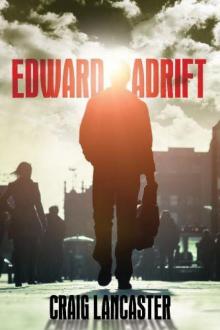 Edward Adrift
Edward Adrift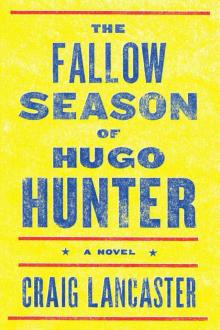 The Fallow Season of Hugo Hunter
The Fallow Season of Hugo Hunter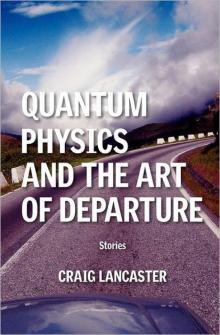 Quantum Physics and the Art of Departure: Short Shories
Quantum Physics and the Art of Departure: Short Shories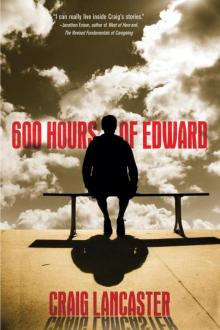 600 Hours of Edward e-1
600 Hours of Edward e-1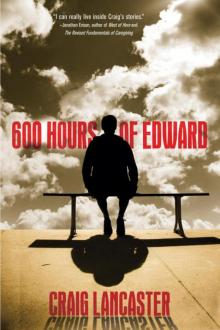 600 Hours of Edward
600 Hours of Edward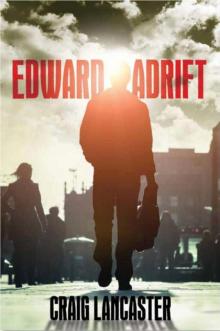 Edward Adrift e-2
Edward Adrift e-2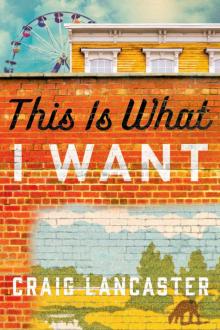 This Is What I Want
This Is What I Want